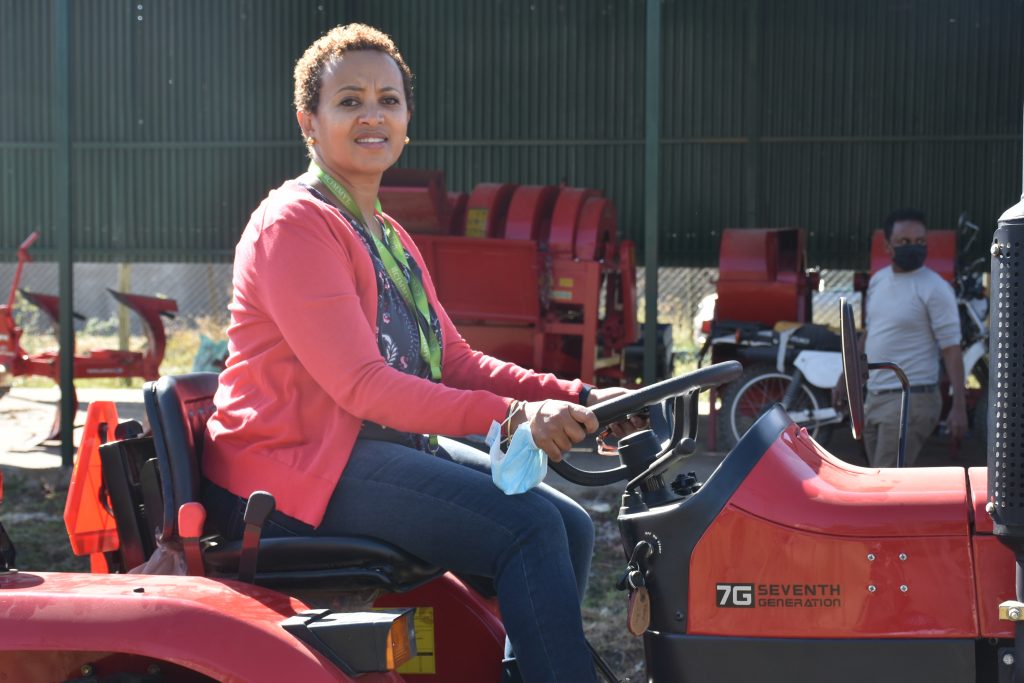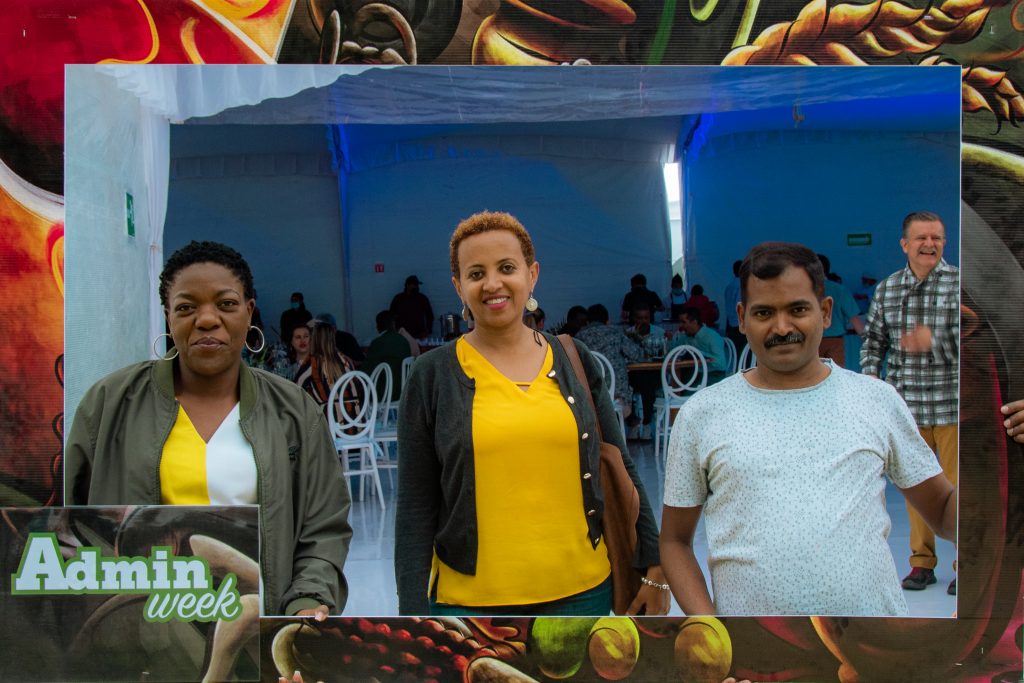November 26, 2020

Rahel Assefa tests out farm machinery in Addis Ababa, Ethiopia. (Photo: Simret Yasabu/CIMMYT)
Ethiopia-born Rahel Assefa began her career as a software engineer in a children’s hospital in Washington DC, USA. Although she enjoyed this work for the first few years, she found that it was not as fulfilling as she had initially hoped.
Rahel slowly started shifting gears towards a new career, initially pursuing an MSc in Project Management. “I knew that I was meant to work in an area where I would have direct interaction and impact, so I really thrived in that environment,” she explains.
Her work was highly appreciated by senior managers and she quickly progressed in this new career path. “I was soon recruited to help build a project management office from scratch and that solidified my interest in the field.”
A return to Africa
Rahel remained in health care for the next few years, taking on roles in portfolio and business relationship management but ultimately, she knew her next step would be to return to Africa and work in a field that contributes to supporting people’s livelihoods.
In 2015, Rahel learned of a job opening at the International Maize and Wheat Improvement Center (CIMMYT) which was suitable to her skillset and would also serve her desire of moving to Africa. She applied and joined the organization in February 2016, moving to Addis Ababa with her young family in tow. “We had always discussed returning to Africa, and preferably to Ethiopia, so this was a welcome move. But it was also a big leap into the unknown because both my husband and I had left Ethiopia during our formative years,” she says.
Rahel had also never worked in the agricultural sector before joining CIMMYT, so there was a steep learning curve to contend with, as well as the cultural shifts she had to make to adjust to her new work environment. “I remember spending my first few days on the job taking the time to just observe, listen actively and ask questions.”

Rahel Assefa (center) meets colleagues at a CIMMYT event in Texcoco, Mexico. (Photo: Alfonso Cortés)
Witnessing impact first-hand
Rahel now works as a project manager and as the regional program manager for CIMMYT’s Sustainable Intensification Program in Africa. “Working at CIMMYT is interesting because I get to collaborate with such a diverse group of people, and we can see that our work has a direct impact on the day-to-day lives of farmers,” she says. “It’s always rewarding to see first-hand how the life of a farmer, woman or young person is transformed because of the work we do.”
“I also find working at CIMMYT’s Ethiopia office enjoyable simply because everyone gets along well,” she explains. Rahel particularly appreciates the Thursday morning coffee gatherings for staff hosted at the International Livestock Research Institute (ILRI) campus, and her frequent interactions with colleagues in Kenya and Zimbabwe, where she travels regularly. “I love having the opportunity to see the work colleagues do on the ground across Africa and I’m always in awe of their dedication to the work they do.”
When she’s not visiting projects in Nairobi or Harare, Rahel cherishes the time she spends with her family and young son, Adam, who seems to be developing a keen interest in agriculture himself. “He loves visiting ‘mommy’s office’ from time to time,” she explains, “and as a result he has recently even attempted to plant maize and wheat in our back garden.”